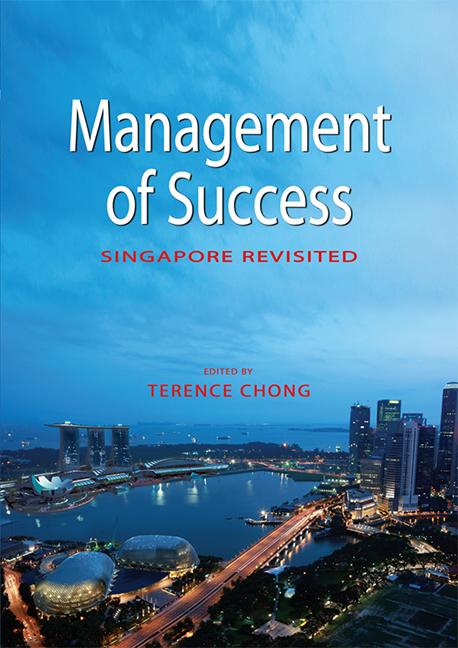Book contents
- Frontmatter
- Contents
- List of Tables and Figures
- Foreword
- Message
- Quote
- Preface
- The Contributors
- 1 Introduction: The Role of Success in Singapore's National Identity
- SECTION 1 SINGAPORE IN THE BIGGER PICTURE
- 2 Singapore's Foreign Policy: Reading and Adapting to the Fast-changing International Context
- 3 Singapore and ASEAN: A Contemporary Perspective
- SECTION 2 LEADERSHIP, POLICY AND POLITICS
- SECTION 3 THE RESTRUCTURING OF THE ECONOMY
- SECTION 4 THE TRANSFORMATION OF SOCIETY
- SECTION 5 THE LAW
- SECTION 6 MODIFICATION OF THE ENVIRONMENT
- SECTION 7 COMMUNITY AND NATIONAL SECURITY
- SECTION 8 LIFE IN SINGAPORE
- Index
2 - Singapore's Foreign Policy: Reading and Adapting to the Fast-changing International Context
from SECTION 1 - SINGAPORE IN THE BIGGER PICTURE
Published online by Cambridge University Press: 21 October 2015
- Frontmatter
- Contents
- List of Tables and Figures
- Foreword
- Message
- Quote
- Preface
- The Contributors
- 1 Introduction: The Role of Success in Singapore's National Identity
- SECTION 1 SINGAPORE IN THE BIGGER PICTURE
- 2 Singapore's Foreign Policy: Reading and Adapting to the Fast-changing International Context
- 3 Singapore and ASEAN: A Contemporary Perspective
- SECTION 2 LEADERSHIP, POLICY AND POLITICS
- SECTION 3 THE RESTRUCTURING OF THE ECONOMY
- SECTION 4 THE TRANSFORMATION OF SOCIETY
- SECTION 5 THE LAW
- SECTION 6 MODIFICATION OF THE ENVIRONMENT
- SECTION 7 COMMUNITY AND NATIONAL SECURITY
- SECTION 8 LIFE IN SINGAPORE
- Index
Summary
The experience and legacy of the political genesis of Singapore have to be borne in mind perpetually in seeking to understand and to explain the underlying premises and conduct of its foreign policy. Although that genesis is a decreasing part of the shared experience of rising generations of Singaporeans, its legacy has become an integral part of the political culture of those entrusted with responsibility for its foreign relations. That legacy is expressed in the conviction that the future of the island-state can never be taken for granted and that its margin for error is minimal.
— Michael LeiferOF THREATS AND VULNERABILITIES
The above observation of the late Michael Leifer, arguably one of the most astute students of the international politics of Southeast Asia until his untimely passing in 2001, remains relevant for any attempt to understand Singapore's foreign policy. The sense of vulnerability remains acute among Singapore's policy elite, and comes across both clearly and coherently from numerous speeches over the years by the island-state's policy elite.
That said, when Singapore ushered in a “second generation” leadership under Goh Chok Tong, the terrain of international affairs had changed considerably. When the leadership transition took place in November 1990, the Cold War, which had defined international politics for four and a half decades, was already coming to an end with signs of definite strain on the Soviet Union and the Warsaw Pact. This paved the way for a host of new security challenges to emerge that were fundamentally different from those faced by Singapore's “first generation” leadership which saw the country through separation from Malaysia and independence. To that effect, while the core principles of Singapore's foreign policy — focussing on the survival of a small island-state — remained imperative in the minds of policy-makers, the nature and source of threats, and the vehicles through which security would be ensured, had changed considerably. The challenge for Singapore's foreign policy establishment was to navigate the island-state through the choppy waters of this new milieu.
For Singapore and Southeast Asia, the immediate impact of the break-up of the Soviet Union in 1991 and the retreat of communism that followed was that it brought to a halt Vietnamese belligerence in mainland Southeast Asia that had for decades been seen as a major security threat to ASEAN (Association of Southeast Asian Nations).
- Type
- Chapter
- Information
- Management of SuccessSingapore Revisited, pp. 21 - 37Publisher: ISEAS–Yusof Ishak InstitutePrint publication year: 2010



